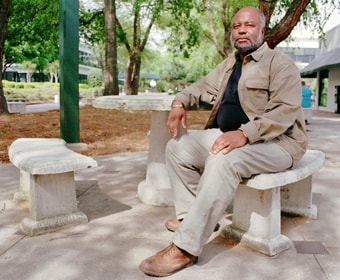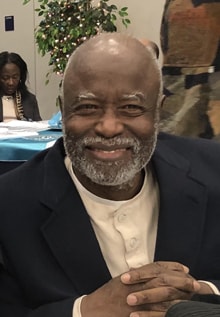The Life and Career of Dr. William ‘Bill’ Jenkins | Health Disparities

[ad_1]

Photo: Jenkins in the 1970s
Dr. William (Bill) Jenkins was born on July 26, 1945, in Mt. Pleasant, South Carolina. He earned a bachelor’s degree in mathematics (1967) at Morehouse College and a Master of Science in biostatistics (1974) at Georgetown University. He received a Master of Public Health (1977) from the University of North Carolina at Chapel Hill (UNC) and went on to earn a doctorate in epidemiology (1983) at UNC. In 1967, the United States Public Health Service (USPHS) Commissioned Corps recruited Dr. Jenkins as a statistician to work in the National Center for Health Statistics (NCHS). Early in his career, Dr. Jenkins became active in the area of public health and biomedical research ethics as he and others worked to bring a stop to the Tuskegee Study of Untreated Syphilis in the Negro Male, 1932-1972, in which Black men in Alabama were unethically denied available treatment for their syphilis infections in order to document the natural history of untreated syphilis. From 1995 to 2003, Dr. Jenkins ran the Tuskegee Health Benefits Program, in which the government provides medical services to the survivors and affected family members. Dr. Jenkins organized the Syphilis Study Legacy Committee, a group of historians, bioethicists, and health professionals who issued a report in 1996 urging President Clinton to apologize for the emotional, medical, and psychological damage of the study. On May 16, 1997, at a White House ceremony, President Clinton delivered a formal apology for the study on behalf of the country. In 2002, Dr. Jenkins produced a documentary titled, “Voices of the Tuskegee Study” in partnership with the Tuskegee Human & Civil Rights Multicultural Center using a grant from CDC.

Photo: Jenkins at Corporate Square
While Dr. Jenkins started his career at NCHS in 1967 (leaving in 1975 for school), upon his return, he spent the majority of his CDC career (1980 to 2003) in what is now NCHHSTP (National Center HIV/AIDS, Viral Hepatitis, STD, and TB prevention). In 1980, Dr. Jenkins joined the Division of Sexually Transmitted Diseases Prevention as a mathematical statistician in the National Center for Prevention Services (NCPS – the forerunner of NCHHSTP). During his 23 years in NCHHSTP, Dr. Jenkins served in multiple roles of increasing leadership, including as a section chief, a supervisory epidemiologist, and as Manager of the Minority Health Activities Office. Also, while at CDC, Dr. Jenkins founded several organizations and programs focused on improving African American health outcomes and eliminating health disparities. In 1982, with CDC support, Dr. Jenkins founded Project IMHOTEP, an eleven-week summer internship program designed to increase the knowledge and skills of underrepresented minority students in biostatistics, epidemiology, and occupational safety and health. In 2001, Dr. Jenkins led the development of the center’s Minority Health Strategic Plan that prompted the creation of the center Office for Health Disparities (now Health Equity).

Photo: Jenkins in Charleston, SC
Outside of CDC, Dr. Jenkins expanded the capacity of the public health workforce to address health disparities. In 1988, he founded Morehouse College’s Public Health Sciences Institute to better prepare underrepresented minority students for entry into graduate schools of public health, with special emphasis on the quantitative sciences of biostatistics, epidemiology, and occupational safety and health. In 1991, he founded the Society for the Analysis of African American Public Health Issues (SAAPHI), an affiliate of the American Public Health Association (APHA). SAAPHI is a nonprofit organization comprised of health professionals dedicated to improving the health of African Americans. In 1995, Dr. Jenkins founded the Master of Public Health Program at Morehouse School of Medicine and consulted on the development of public health programs at other historically black colleges and universities (HBCUs). Additionally, he led the creation of a CDC cooperative agreement that supported the development of graduate level public health programs at HBCUs. Following his retirement from CDC, Dr. Jenkins remained active in the pursuit of health equity and the promotion of public health ethics as professor of public health sciences at Morehouse College and associate director of Morehouse’s Research Center on Health Disparities. Dr. Jenkins moved to Chapel Hill, North Carolina, with his wife when she became a professor at the University of North Carolina Gillings School of Global Public Health where he served as adjunct professor of epidemiology. He remained an actively engaged mentor, lecturer, and champion for health equity and social justice until his passing on February 17, 2019.
[ad_2]
Source link
